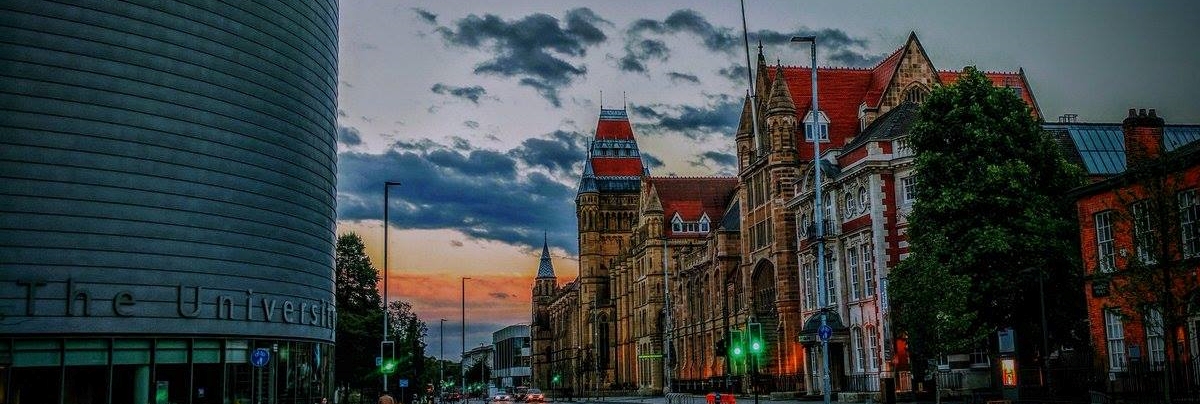
Realist Democratic Innovations: From Realist Democratic Theory to Institutional Innovations
Janosch Prinz & Manon Westphal
Arthur Lewis Building G.036 (hybrid)
Realist democratic innovations – from realist democratic theory to institutional innovations Contemporary European and North American democracies are caught in complex discontents from groups who claim to be left behind, silenced, or oppressed. These discontents arguably have to do with the shifts in, and the concentration of, political power (e.g. Pierson and Hacker, 2010; Gilens and Page, 2014), cultural power (see e.g. Reckwitz, 2020), and economic power (see e.g. Adkins et al, 2020).
Scholarly responses to these developments, which might give impulses to public debates on how democracies could tackle the current discontents, are unsatisfactory. Many crisis diagnoses in the field of democratic theory focus on the phenomenon of right-wing populism itself, rather than on the shifts and concentrations of social, political, and economic power that arguably produce the manifold discontents that right-wing populists exploit (e.g., Müller, 2016; Urbinati, 2019). Those who demand political responses to right-wing populism in the form of political movements that target extant patterns of exclusion and marginalisation (e.g., Mouffe, 2018) remain too silent on what might be reforms of the institutional setting of contemporary democracies that could undergird respective political objectives. These institutional settings play a significant role in the reproduction of concentrations of power, which means that promising attempts to deal politically with the shifts and concentrations of power, and the complex lines of conflict that they produce, must employ novel institutional means (e.g. Pierson and Hacker, 2010; Gilens and Page, 2014).
Realist political theory is arguably especially apt for finding novel responses to these discontents because of its focus on relations of power and its emphasis of the diagnostic element of political theorizing. In addition, realists have not only begun to move from metatheoretical and methodological concerns to first-order concerns, they have also started addressing the relationship between realism and democracy.
This panel seeks to intensify realist discussion of its relationship to democratic theory, especially with regard to theorizing democratic institution and institutional innovation. The panel is in part inspired by recent attempts to craft democratic innovations that – in our view – are best read as realist, such as the attempt to revive the Roman tribunate by John McCormick (2011), Camila Vergara (2020) and Gordon Arlen & Enzo Rossi (2021).
Potential paper topics may include but are not limited to:
- Is realism in political theory compatible with a commitment to democracy?
- If so, must realist commitments to democracy be tendentially liberal?
- In what ways can realism be compatible with radical democracy, or other established forms of democratic theorizing?
- What would characterize a realist democratic theory?
- How should we conceptualize the relationship between (de-)politicization and (de-)democratization in liberal democracies today?
- What would a realist democratic innovation entail?
- What criteria should realists employ to assess the quality of potential democratic innovations?
- Are some of the institutional innovations that are discussed in the broader debate on democratic innovations already realist, or must realists look for radically new forms of institutional innovation?
- Does saving liberal democracy require supplementing universal representation in parliaments with institutions that do not aim for this form of representation?
- How can realist democratic innovation be used to effectively address the discontents that underlie the current challenges to (liberal) democracy?
|
|
|
|
11:00-12:30 |
Registration |
|
12:30-13:30 |
Lunch |
|
13:30-14:00 |
Welcome Speech |
|
14:00-15:30 |
Session 1 Dr. Tom O’Shea (Roehampton) “Realist Republican Responses to Oligarchy” Dominik Austrup and Suzanne Bloks (Hamburg) “Recalibrating Democracy: Republican-Realism against Informal Political Power” |
|
15:30-16:00 |
Tea and Coffee Break |
|
16:00-17:30 |
Session 1 (continued) Prof. Lawrence Hamilton (Cambridge University/University of Witwatersrand) “Representative Democracy Against Oligarchy” Dr. Zsolt Kapelner (Arctic University of Norway) “Being realistic about democracy” |
|
17:45-19:00 |
Wine Reception |
|
19:30 |
Conference Dinner |
|
|
|
|
9:30-11:00 |
Session 2 Dr. Janosch Prinz (Maastricht) and Dr. Manon Westphal (Münster) “The Tribunate as a Realist Democratic Innovation” Dr. Alexander Weiß (Rostock) “Realist democratic theory: how democratic theory can and should react to major transformations like digitalization and democratic backsliding” |
|
11:00-11:30 |
Tea and Coffee Break (optional) |
|
11:30-13:00 |
Session 2 (continued) Dr. Jonathan Floyd (Bristol) “Normative Behaviorism as realist political theory” Eric Chen (Hamburg) “Democratizing Meritocracy. How to do Neo-Confucianism in a Realistic Way” |
|
13:00-14:00 |
Lunch |
|
14:00-15:30 |
Session 3 Dr. Paul Raekstad (Amsterdam) “The Climate Crisis and the Democratic Illegitimacy of Capitalism” Dr. Ilaria Cozzaglio (Frankfurt) “No conflict, no trust: populist and democratic views in comparison” |
|
15:30-16:00 |
Tea and Coffee Break (optional) |
|
16:00-17:00 |
Session 3 (continued) Dr. Carlo Burelli (Genoa/Chicago) “No Virtue like Resilience – Machiavelli’s realistic justification of democracy”
|
